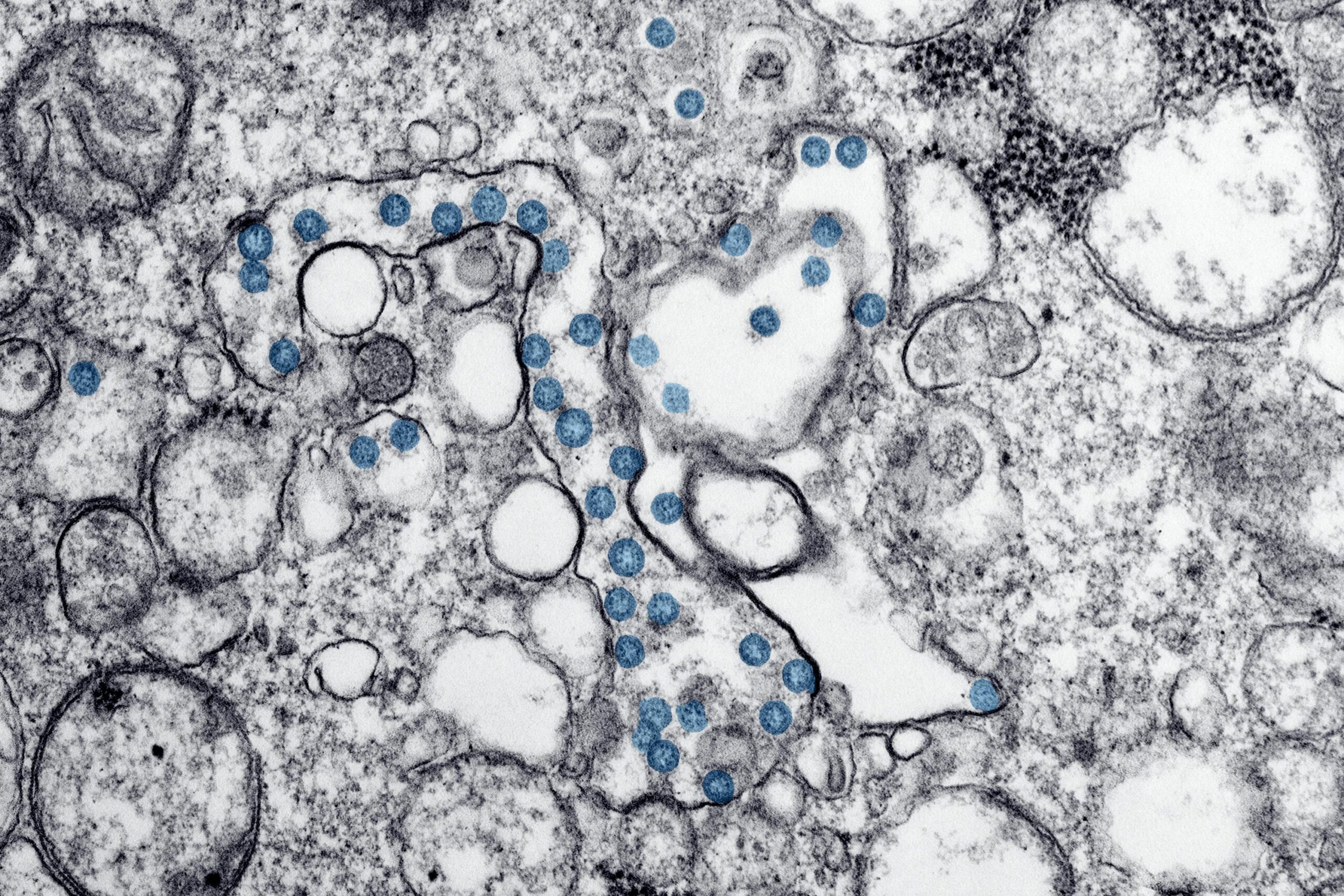Artificial intelligence is transforming our understanding of the human gut microbiome, revealing intricate patterns and relationships that were previously invisible to traditional research methods.
🧬 The Dawn of Intelligent Microbiome Analysis
The human gut microbiome represents one of the most complex ecosystems on Earth, hosting trillions of microorganisms that profoundly influence our health, mood, and overall well-being. For decades, scientists struggled to comprehend the intricate relationships between different microbial species and their impact on human physiology. However, the integration of artificial intelligence and machine learning algorithms has ushered in a new era of microbiome research, enabling researchers to decode patterns that would take human analysts centuries to identify.
Traditional microbiome studies relied heavily on observational data and limited statistical analysis. Researchers could identify which bacteria were present in gut samples, but understanding how these microorganisms interacted, competed, or cooperated remained largely mysterious. The sheer volume of data generated by modern sequencing technologies overwhelmed conventional analytical approaches, creating a bottleneck in scientific progress.
Today’s AI-powered systems can process millions of data points simultaneously, identifying subtle correlations between microbial composition and health outcomes. These sophisticated algorithms learn from vast databases of microbiome samples, clinical records, and genetic information to build predictive models that reveal cause-and-effect relationships previously hidden in the noise of biological complexity.
🔬 How AI Models Decode Microbial Communication Networks
The gut microbiome functions as a sophisticated communication network where bacteria, viruses, fungi, and other microorganisms constantly exchange chemical signals. These interactions determine everything from nutrient absorption to immune system function. AI modeling has revolutionized our ability to map these communication pathways by analyzing metabolomic data alongside genomic sequences.
Machine learning algorithms excel at pattern recognition tasks that would overwhelm human researchers. When applied to microbiome data, these systems can identify which bacterial species tend to coexist, which compete for resources, and which produce metabolites that influence human cells. Neural networks trained on thousands of microbiome samples can predict how introducing specific probiotic strains might alter the entire ecosystem.
Deep learning architectures have proven particularly valuable for understanding temporal dynamics within the gut. The microbiome doesn’t remain static—it fluctuates based on diet, stress levels, medications, and countless other factors. AI models can track these changes over time, identifying critical transition points where the ecosystem shifts from a healthy to a dysbiotic state.
Predictive Modeling for Personalized Interventions
One of the most exciting applications of AI in gut health involves creating personalized treatment recommendations. By analyzing an individual’s unique microbiome composition alongside their medical history, lifestyle factors, and genetic predispositions, AI systems can suggest targeted dietary modifications or probiotic supplements most likely to improve their specific condition.
These predictive models consider thousands of variables simultaneously, accounting for complex interactions that no human clinician could mentally process. For example, the system might recognize that a particular bacterial strain thrives only in the presence of specific dietary fibers while being inhibited by certain food additives. Such nuanced insights enable precision nutrition strategies tailored to individual microbiome profiles.
💡 Breakthroughs Enabled by Machine Learning Algorithms
Recent years have witnessed remarkable discoveries driven by AI analysis of microbiome data. Researchers have identified specific bacterial signatures associated with conditions ranging from inflammatory bowel disease to depression and anxiety. These findings suggest that many disorders previously considered purely genetic or psychological may have significant microbial components.
One groundbreaking study utilized convolutional neural networks to analyze gut microbiome compositions from thousands of individuals with type 2 diabetes. The AI system identified a specific consortium of bacterial species strongly correlated with improved glucose metabolism. This discovery has opened new avenues for diabetes management through targeted microbiome modification rather than relying solely on medication.
Similarly, natural language processing algorithms have been applied to the vast scientific literature on gut health, extracting connections between different research findings that human reviewers might miss. These AI systems can read and synthesize thousands of research papers, identifying emerging patterns and generating hypotheses for experimental validation.
Uncovering Hidden Metabolic Pathways
Beyond identifying which bacteria are present, AI models have illuminated the biochemical processes occurring within the gut ecosystem. Machine learning algorithms can predict which metabolic pathways are active based on the genetic potential of present microbial species. This metabolomic profiling reveals how gut bacteria produce vitamins, neurotransmitters, and other compounds essential for human health.
For instance, AI analysis revealed that certain bacterial combinations produce higher levels of short-chain fatty acids—molecules crucial for gut barrier integrity and anti-inflammatory effects. Understanding these metabolic networks allows researchers to design interventions that enhance beneficial metabolite production while reducing harmful compounds.
🌟 Real-World Applications Transforming Healthcare
The theoretical advances in AI-driven microbiome research are rapidly translating into practical clinical applications. Healthcare providers are beginning to incorporate microbiome analysis into diagnostic protocols, using AI-powered platforms to interpret test results and recommend evidence-based interventions.
Several biotechnology companies have developed commercial platforms that combine microbiome sequencing with AI analysis to provide personalized health recommendations. These services analyze stool samples to determine the composition of an individual’s gut microbiome, then use machine learning algorithms to generate customized dietary plans and supplement suggestions designed to optimize microbial balance.
In clinical settings, gastroenterologists are using AI-assisted microbiome analysis to guide treatment decisions for patients with chronic digestive disorders. Rather than relying on trial-and-error approaches to finding effective therapies, physicians can now use predictive models to identify which interventions are most likely to succeed for each patient’s unique microbial profile.
Revolutionizing Probiotic Development
The probiotic industry has embraced AI modeling to design more effective products. Traditional probiotics often contained bacterial strains selected through relatively crude screening processes. AI-driven approaches enable researchers to identify synergistic combinations of bacterial strains that work together more effectively than individual species alone.
Machine learning algorithms analyze how different probiotic strains interact with existing gut microbiomes, predicting which formulations will successfully colonize the intestinal environment and produce measurable health benefits. This data-driven approach has dramatically increased the success rate of probiotic interventions compared to earlier generation products.
🧠 The Gut-Brain Axis: AI Illuminates Mental Health Connections
Perhaps no area of microbiome research has generated more excitement than the discovery of the gut-brain axis—the bidirectional communication network connecting intestinal microbiota with the central nervous system. AI analysis has been instrumental in mapping these connections and revealing how gut bacteria influence mood, cognition, and mental health.
Neural networks trained on combined datasets of microbiome compositions and psychological assessments have identified specific bacterial signatures associated with depression, anxiety, and even autism spectrum disorders. These findings challenge traditional notions of mental illness as purely neurological conditions, suggesting that microbial imbalances may contribute significantly to psychiatric symptoms.
Researchers have discovered that certain gut bacteria produce neurotransmitters like serotonin, dopamine, and GABA—the same chemical messengers that psychiatric medications target. AI models have mapped which bacterial species possess the genetic machinery to synthesize these compounds and under what conditions they do so most actively.
Therapeutic Implications for Mental Wellness
These discoveries have opened exciting possibilities for treating mental health conditions through microbiome modification. Early clinical trials are investigating whether targeted probiotic interventions can alleviate symptoms of depression and anxiety. AI models help identify which patients are most likely to respond to these psychobiotic treatments based on their baseline microbiome composition.
The integration of wearable technology with microbiome monitoring promises even more sophisticated interventions. Imagine systems that track stress levels, sleep patterns, and physical activity while simultaneously monitoring gut microbiome fluctuations. AI algorithms could analyze these multiple data streams to provide real-time recommendations for optimizing both gut health and mental well-being.
📊 Data Challenges and Computational Innovations
Despite remarkable progress, AI-driven microbiome research faces significant challenges. The human gut microbiome exhibits enormous interpersonal variation, making it difficult to establish universal patterns. What constitutes a healthy microbiome for one individual may be quite different for another, complicating the development of standardized therapeutic guidelines.
AI systems require massive amounts of high-quality data to generate reliable predictions. While thousands of microbiome samples have been sequenced, this represents a tiny fraction of human diversity. Researchers are working to expand databases to include more diverse populations, ensuring that AI models don’t perpetuate biases present in predominantly Western research cohorts.
Computational requirements for analyzing microbiome data at scale are substantial. Processing genomic sequences, metabolomic profiles, and clinical data for thousands of individuals demands significant computing power. Cloud-based platforms and specialized bioinformatics infrastructure have become essential tools for modern microbiome research.
Integrating Multi-Omics Data Streams
The most sophisticated AI models integrate multiple types of biological data—genomics, transcriptomics, proteomics, and metabolomics—to create comprehensive pictures of gut ecosystem function. These multi-omics approaches provide deeper insights than any single data type alone but require advanced machine learning architectures capable of handling heterogeneous information sources.
Researchers are developing novel neural network architectures specifically designed for biological data integration. These systems can identify relationships between genetic sequences, gene expression patterns, protein production, and metabolite concentrations, revealing mechanistic insights into how microbiomes influence human health.
🚀 Future Horizons: Where AI and Microbiome Science Converge
The convergence of artificial intelligence and microbiome research stands poised to revolutionize preventive medicine and personalized healthcare. As AI models become more sophisticated and datasets more comprehensive, we can anticipate increasingly precise interventions tailored to individual microbiome profiles.
Emerging technologies like real-time microbiome monitoring through ingestible sensors will generate continuous data streams that AI systems can analyze to provide dynamic health recommendations. Rather than periodic stool sample analysis, individuals might receive ongoing insights into their gut ecosystem status with immediate suggestions for optimization.
The integration of CRISPR gene editing technology with AI-guided microbiome engineering could enable unprecedented precision in modifying gut ecosystems. Researchers might design bacterial strains with specific therapeutic functions, using AI models to predict how these engineered organisms will interact with existing microbial communities.
Ethical Considerations and Responsible Innovation
As these powerful technologies develop, important ethical questions emerge. Who owns microbiome data, and how should it be protected? Could microbiome profiles be used discriminatorily by insurance companies or employers? Ensuring equitable access to AI-powered microbiome therapies will require careful policy development and regulatory oversight.
The scientific community is actively discussing standards for responsible AI development in healthcare contexts. Transparency in algorithmic decision-making, validation of AI predictions through rigorous clinical trials, and protection of individual privacy must remain paramount as this field advances.
🌍 Democratizing Gut Health Knowledge Through Technology
Beyond clinical applications, AI-powered microbiome analysis is making sophisticated health insights accessible to everyday consumers. Educational platforms are emerging that help individuals understand their gut health through interactive visualizations and personalized recommendations generated by machine learning algorithms.
These consumer-facing technologies translate complex microbiome data into actionable insights presented in user-friendly formats. People can learn which foods best support their unique microbial ecosystem, track how lifestyle changes influence gut composition over time, and make informed decisions about their digestive health without requiring advanced scientific knowledge.
The democratization of microbiome knowledge empowers individuals to take proactive roles in managing their health. Rather than passively receiving medical interventions, people can actively cultivate beneficial gut ecosystems through informed dietary and lifestyle choices guided by AI-generated insights.

🔮 Transforming Our Relationship With Internal Ecosystems
The application of artificial intelligence to microbiome research represents more than technological advancement—it fundamentally changes how we understand ourselves as biological beings. We are not isolated organisms but complex ecosystems hosting trillions of microbial partners whose activities profoundly influence our physical and mental health.
AI modeling has revealed that these microbial communities operate according to ecological principles similar to those governing forests, oceans, and other natural ecosystems. Concepts like biodiversity, keystone species, and succession dynamics apply as meaningfully to gut microbiomes as to macroscopic environments. This ecological perspective, illuminated by machine learning analysis, provides a richer framework for understanding and optimizing gut health.
As research progresses, the distinction between treating disease and cultivating health becomes increasingly important. Rather than waiting for problems to emerge and then applying corrective interventions, AI-guided microbiome management enables proactive cultivation of resilient, health-promoting gut ecosystems. This preventive approach could dramatically reduce the burden of chronic diseases linked to microbial imbalances.
The revolution in gut health understanding driven by artificial intelligence promises to reshape medicine, nutrition, and our fundamental conception of human biology. By unlocking the secrets of microbiome systems through sophisticated computational analysis, we gain unprecedented ability to optimize these internal ecosystems for improved health, longevity, and quality of life. The journey has only begun, but the destination—a future where personalized microbiome management is routine healthcare practice—grows clearer with each algorithmic breakthrough.
Toni Santos is a deep-biology researcher and conscious-evolution writer exploring how genes, microbes and synthetic life inform the future of awareness and adaptation. Through his investigations into bioinformatics, microbiome intelligence and engineered living systems, Toni examines how life itself becomes a field of awakening, design and possibility. Passionate about consciousness in biology and the evolution of living systems, Toni focuses on how life’s architecture invites insight, coherence and transformation. His work highlights the convergence of science, philosophy and emergent life — guiding readers toward a deeper encounter with their living world. Blending genetics, systems biology and evolutionary philosophy, Toni writes about the future of living systems — helping readers understand how life evolves through awareness, integration and design. His work is a tribute to: The intertwining of biology, consciousness and evolution The emergence of microbial intelligence within and around us The vision of life as designed, adaptive and self-aware Whether you are a scientist, thinker or evolving being, Toni Santos invites you to explore the biology of tomorrow — one gene, one microbe, one awakening at a time.




